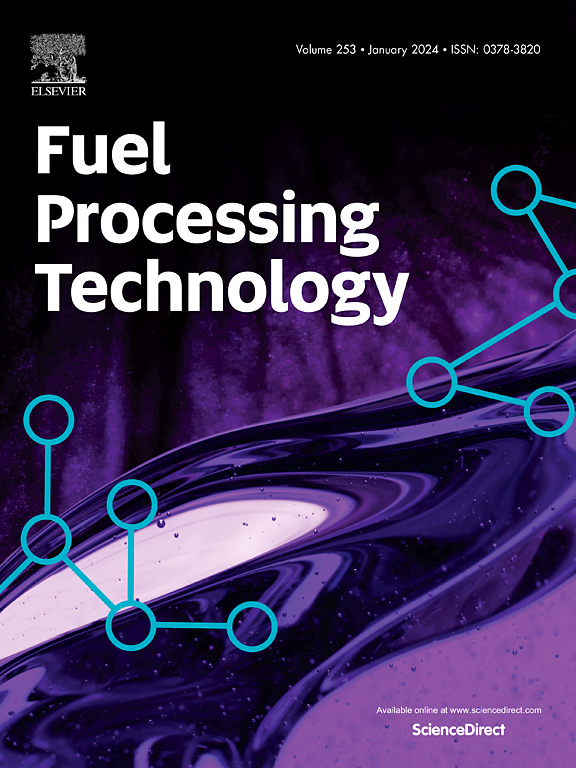污泥生物种子煤吸附特性及孔隙结构变化的实验研究
IF 7.7
2区 工程技术
Q1 CHEMISTRY, APPLIED
引用次数: 0
摘要
本研究考察了污泥基生物处理对亚烟煤和褐煤气体吸附和孔隙结构改性的影响,旨在提高煤矸石中富甲烷沼气的产量。我们之前报道了以煤为主要原料,污泥为生物种子的间歇式反应器生产沼气的有希望的结果。本研究通过甲烷和CO2气体吸附实验以及孔结构表征,量化生物反应和孔结构修饰引起的气体吸附能力的变化。结果表明,生物处理后的吸附能力显著提高,亚烟煤和褐煤的CH₄吸附能力分别提高了40%和42%,CO₂吸附能力分别提高了53%和24%。孔隙结构表征证实了孔隙体积和表面积的增强,表明活性微生物诱导的修饰主要发生在大孔表面。这些变化有助于改善气体吸附,并对生物增强煤层气回收和CO 2封存具有重要意义。本研究肯定地证实了生物反应诱导的微生物活性对孔隙结构的积极改变。未来的研究将需要量化局部水气平衡,以优化污泥生物种子煤转化。本文章由计算机程序翻译,如有差异,请以英文原文为准。
Characterization of gas sorption and pore structure alterations of sludge bio-seeding coals: an experimental study
This study examines the impact of sludge-based bio-treatment on gas sorption and pore structure modification in subbituminous and lignite coals, aiming to enhance methane-rich biogas production from coal waste. We previously reported the promising results for biogas production from batch reactors using coal as the primary feedstock and sludge as the bio-seeds. In this study, methane and CO2 gas sorption experiments, along with pore structure characterization, were performed to quantify the changes in gas sorption capacity induced by bio-reaction and modifications to the pore structure. The results reveal significant capacity increases post-bio-treatment, with CH₄ adsorption improving by 40 % for subbituminous coal and 42 % for lignite, and CO₂ adsorption increasing by 53 % and 24 %, respectively. The pore structure characterization confirmed enhanced pore volume and surface area, suggesting active microbial-induced modifications, primarily on macropore surfaces. These changes contribute to improved gas sorption and present promising implications for bio-enhanced coalbed methane recovery and CO₂ sequestration. This study affirmatively confirmed that bio-reaction induced microbial activities actively modified the pore structure. Future investigations will be needed to quantify the localized aqueous-gas equilibrium for optimizing sludge bio-seeding coal conversion.
求助全文
通过发布文献求助,成功后即可免费获取论文全文。
去求助
来源期刊

Fuel Processing Technology
工程技术-工程:化工
CiteScore
13.20
自引率
9.30%
发文量
398
审稿时长
26 days
期刊介绍:
Fuel Processing Technology (FPT) deals with the scientific and technological aspects of converting fossil and renewable resources to clean fuels, value-added chemicals, fuel-related advanced carbon materials and by-products. In addition to the traditional non-nuclear fossil fuels, biomass and wastes, papers on the integration of renewables such as solar and wind energy and energy storage into the fuel processing processes, as well as papers on the production and conversion of non-carbon-containing fuels such as hydrogen and ammonia, are also welcome. While chemical conversion is emphasized, papers on advanced physical conversion processes are also considered for publication in FPT. Papers on the fundamental aspects of fuel structure and properties will also be considered.
 求助内容:
求助内容: 应助结果提醒方式:
应助结果提醒方式:


